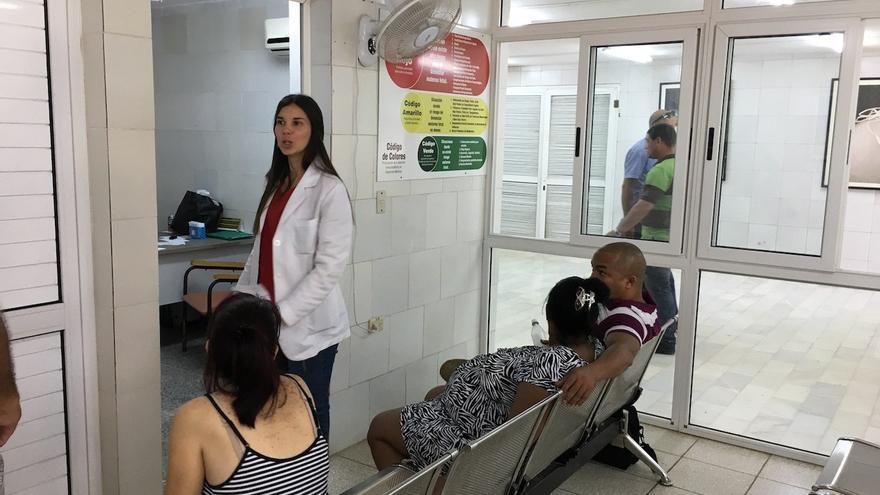
![]() EFE (via 14ymedio), Havana, 13 April 2022 — Adolescent motherhood in Cuba has decreased in the last two years –marked by the pandemic — however the fall was at a much slower rate than among all other age groups, and therefore now represents a greater percentage of mothers in the country (17%), according to a study by the Center for Demographic Studies of the University of Havana.
EFE (via 14ymedio), Havana, 13 April 2022 — Adolescent motherhood in Cuba has decreased in the last two years –marked by the pandemic — however the fall was at a much slower rate than among all other age groups, and therefore now represents a greater percentage of mothers in the country (17%), according to a study by the Center for Demographic Studies of the University of Havana.
From 2019 to 2020, pregnancies — both interruptions and births — per 1,000 women aged 15 to 19, decreased. The pregnancy rate was 123.4 and fell by around 9% compared to 2019, when this indicator stood at 136.8, details the study, cited by state media.
For the deputy director of the Center for Demographic Studies (Cedem), Matilde Molina, this decline could be explained by the confinement and closure of recreational centers, schools and other socialization spaces, according to an article in Cubadebate.
This situation led to “fewer unions and marriages, less frequent sexual relations, fewer sexual initiations and greater family control over girls’ leisure time and their contact with people outside the home,” the expert pointed out.
“In 2019 births to mothers between 15 and 19 years old represented 16.7% of the country’s total births, but in 2020 that figure rose to 17% and in 2021 to 17.1%,” she detailed.
The article also refers to reports from the United Nations Population Fund (UNFPA) program in Cuba, which refer to the highest indicators of early pregnancies in the provinces of Camagüey, Las Tunas, Holguín and Granma, with 51.5 births per 1,000 women under 20 years of age, in 2020.
The sociologist and professor at the University of Havana, Reina Fleites, pointed out during a conference on Children, Adolescents and Youth – recently held in Havana – that early motherhood occurs more among mixed-race and black adolescents, living in rural environments, not engaged in study or work, and living in low-income housing and in precarious conditions.
“Many adolescents choose a ’maternity project’ based on the belief that this can be a way of migrating, improving their well-being, getting out of poverty or leaving their family of origin, some even believe they can achieve independence,” said Fleitas.
During April of this year, the third National Fertility Survey is being carried out in Cuba, whose main objectives are to update information on demographic, socioeconomic and cultural factors and the motivations and circumstances that play a role in the reproductive decisions of men and women, including adolescents.
____________
COLLABORATE WITH OUR WORK: The 14ymedio team is committed to practicing serious journalism that reflects Cuba’s reality in all its depth. Thank you for joining us on this long journey. We invite you to continue supporting us by becoming a member of 14ymedio now. Together we can continue transforming journalism in Cuba.
